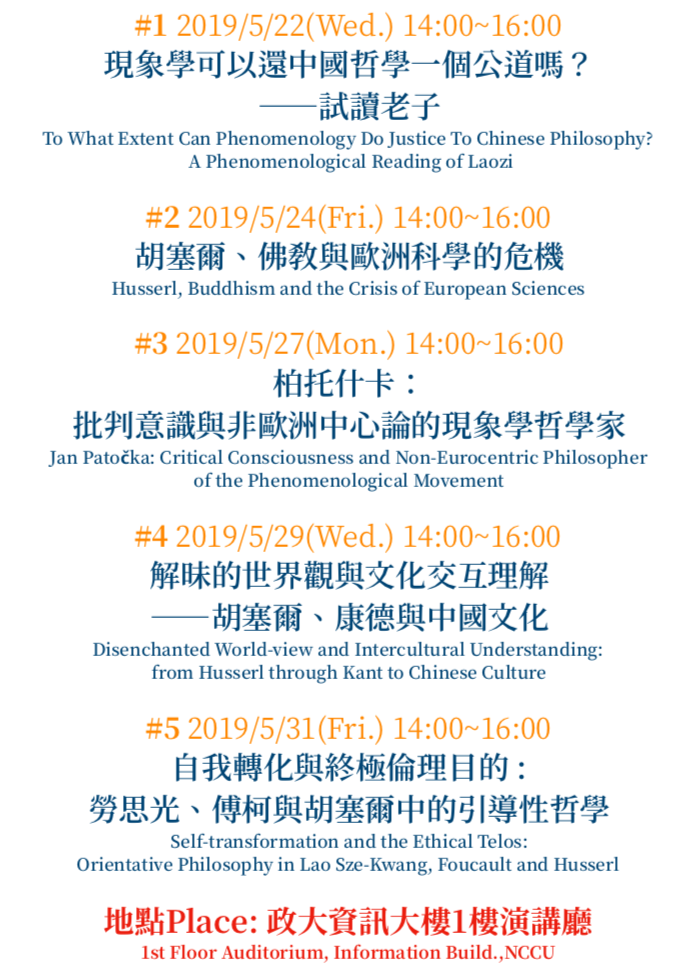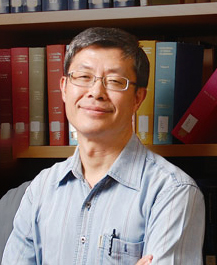講座簡介
本演講系列將從現象學角度探討跨文化哲學。現象學之父胡塞爾從未對任何東方哲學文獻作內部討論,甚至認為印度哲學和中國哲學都並非真正意義下的哲學,這意味著他持守一個歐洲中心論的哲學觀。然而,胡塞爾的具體現象學研究,在在展示了一種開放的探討態度和嚴謹的研究方法,鼓舞了德國內外幾代的追隨者,把現象學發展成一個跨語言、跨文化,和跨學科的學術運動。本系列演講採取雙向閱讀和思考的進路,一方面運用現象學運動的理論資源,重新理解中國道家哲學、儒家哲學,以及印度佛家哲學的一些基本概念、學說和方法論議題;另一方面則透過當代中國哲學中的一些重要的概念創新(勞思光的「引導性哲學」和「自我轉化」概念),來釐清西方哲學一種發展新趨向。這一雙向的閱讀和思考,體現了文化交互理解的哲學實踐,藉此培育一種新的文化肌膚,從而具體地勾畫出一條建立跨文化現象學的道路。
This series of lectures is an exploration into intercultural philosophy from the phenomenological perspective. The father of phenomenology Edmund Husserl has never devoted any internal discussion on Eastern philosophy. He has even once declared that both Indian Philosophy and Chinese Philosophy are not philosophy in the genuine sense of the term, betraying his Eurocentric conception of philosophy. Yet the concrete phenomenological investigations carried out by Husserl demonstrate an open attitude and a rigorous research method. These have inspired generations of followers within and without Germany, and contributed to the development of phenomenology into a pluri-linguistic, cross-cultural, and interdisciplinary intellectual movement. This series will attempt, on the one hand, at a new understanding of the concepts, doctrines and methodological issues of Chinese Daoism, Confucianism and Indian Buddhism by employing theoretical resources provided by the phenomenological movement. On the other hand, by means of some theoretical innovations of contemporary Chinese philosophy (Lao Sze-Kwang’s ideas of orientative philosophy and self-transformation, we will try to elucidate some new trends of development of contemporary Western Philosophy. This two-way reading and thinking incarnates the concrete practice of intercultural understanding in philosophy. It also paves the way toward an intercultural phenomenology through the cultivation of a new cultural flesh.


